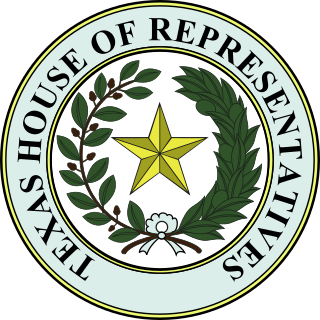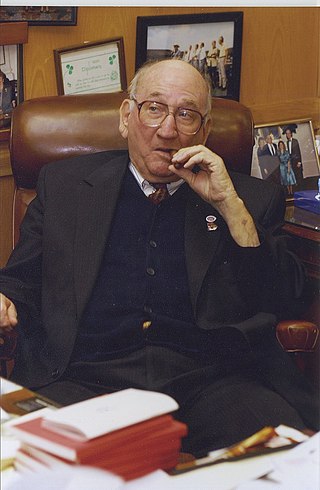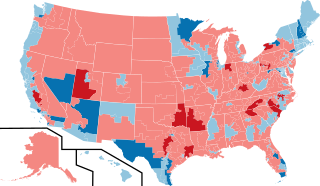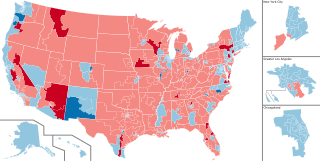Bob Hanner | |
|---|---|
 | |
| Member of the Georgia House of Representatives | |
| In office September 18, 1975 –January 14, 2013 | |
| Children | 2 |
Robert Paul Hanner (April 19, 1945 – January 2, 2019) was an American politician and businessman.
Bob Hanner | |
|---|---|
 | |
| Member of the Georgia House of Representatives | |
| In office September 18, 1975 –January 14, 2013 | |
| Children | 2 |
Robert Paul Hanner (April 19, 1945 – January 2, 2019) was an American politician and businessman.
Robert Paul Hanner was born in Americus, Georgia on April 19, 1945 to Jack and Yip Hanner. He attended Parrott Grammar School, Terrell High School, Gordon Military College in Barnesville and Georgia Southwestern State University. He served in the United States Coast Guard in 1967 and 1968 in South Vietnam. [1] Hanner was a farmer. He was involved in the insurance business and estate planning. He lived in Parrott, Georgia for nearly all of his life.
Hanner was a member of the Georgia House of Representatives from 1974 to 2013. He was a loyal Democrat for most of his political career, advancing to the position of committee Chairman during the decades when Democrats exercised majority rule. [2] [3] Hanner served during a period when House Speaker Tom Murphy waged a fiercely partisan battle against Republicans, drawing district maps during reapportionment which were criticized as pro-Democrat gerrymanders. [3] [4] It was during this period that Congressman Newt Gingrich remarked that "The Speaker, by raising money and gerrymandering, has sincerely dedicated a part of his career to wiping me out." [5] Murphy made Hanner his point man in this effort, as Chairman of the House Legislative & Congressional Reapportionment committee, specifically charged with creating the gerrymandered districts. [2] [3] [4] With the fall of Speaker Murphy, and the shift of power from Democrats to Republicans, Hanner left the Democratic party and switched to the Republicans in 2010. [1] [6] [7] [8]
Hanner died on January 2, 2019.

George Lloyd Murphy was an American actor and politician. Murphy was a song-and-dance leading man in many big-budget Hollywood musicals from 1930 to 1952. He was the president of the Screen Actors Guild from 1944 to 1946, and was awarded an honorary Oscar in 1951. Murphy served from 1965 to 1971 as U.S. Senator from California, the first notable American actor to be elected to statewide office in California, predating Ronald Reagan and Arnold Schwarzenegger, who each served two terms as governor. He is the only United States Senator represented by a star on the Hollywood Walk of Fame.

Ralph Moody Hall was an American politician who served as the United States representative for Texas's 4th congressional district from 1981 to 2015. He was first elected in 1980, and was the chairman of the House Committee on Science, Space and Technology from 2011 to 2013. He was also a member of the Committee on Energy and Commerce. In 2004, he switched to the Republican Party after having been a member of the Democratic Party for more than 50 years.

Timothy Keith Moore is an American attorney and politician who has been the speaker of the North Carolina House of Representatives since 2015 and is now the U.S. Representative-elect for NC-14. A Republican, Moore represents the 111th State House District, which includes Cleveland County. Moore was first elected to the state House in 2002.

The Texas House of Representatives is the lower house of the bicameral Texas Legislature. It consists of 150 members who are elected from single-member districts for two-year terms. There are no term limits. The House meets at the State Capitol in Austin.

The 2002 United States House of Representatives elections were held on November 5, 2002, in the middle of President George W. Bush's first term, to elect U.S. Representatives to serve in the 108th United States Congress. This was the first congressional election using districts drawn up during the 2000 United States redistricting cycle on the basis of the 2000 census.

The 1992 United States House of Representatives elections were held on November 3, 1992, to elect U.S. Representatives to serve in the 103rd United States Congress. They coincided with the 1992 presidential election, in which Democrat Bill Clinton was elected president, defeating Republican incumbent President George H. W. Bush.

The 1982 United States House of Representatives elections was an election for the United States House of Representatives held on November 2, 1982, to elect members to serve in the 98th United States Congress. They occurred in the middle of President Ronald Reagan's first term, whose popularity was sinking due to economic conditions under the 1982 recession. The President's Republican Party lost seats in the House, which could be viewed as a response to the President's approval at the time. Unlike most midterm election cycles, the number of seats lost—26 seats to the Democratic Party—was a comparatively large swap. It included most of the seats that had been gained the previous election, cementing the Democratic majority. Coincidentally, the number of seats the Democrats picked up (26), was the exact amount the Republicans would have needed to win the House majority. It was the first election held after the 1980 United States redistricting cycle.

Thomas Bailey Murphy was an attorney and American politician from the U.S. state of Georgia. Murphy was the Speaker of the Georgia House of Representatives from 1973 until his defeat in the general election of 2002, making him the third longest serving House Speaker of any U.S. state legislature, behind only Michael Madigan of Illinois and Solomon Blatt of South Carolina. He was a member of the Democratic Party.
Davis v. Bandemer, 478 U.S. 109 (1986), is a case in which the United States Supreme Court held that claims of partisan gerrymandering were justiciable, but failed to agree on a clear standard for the judicial review of the class of claims of a political nature to which such cases belong. The decision was later limited with respect to many of the elements directly involving issues of redistricting and political gerrymandering, but was somewhat broadened with respect to less significant ancillary procedural issues. Democrats had won 51.9% of the votes, but only 43/100 seats. Democrats sued on basis of one man, one vote, however, California Democrats supported the Indiana GOP's plan.

The 2012 United States House of Representatives elections were held on November 6, 2012. It coincided with the reelection of President Barack Obama. Elections were held for all 435 seats representing the 50 U.S. states and also for the delegates from the District of Columbia and five major U.S. territories. The winners of this election cycle served in the 113th United States Congress. This was the first congressional election using districts drawn up based on the 2010 United States census.

Redistricting in Pennsylvania refers to the decennial process of redrawing state legislative and federal congressional districts in Pennsylvania.

The 2002 House elections in Georgia occurred on November 5, 2002 to elect the members of the State of Georgia's delegation to the United States House of Representatives. Georgia has thirteen seats in the House, apportioned according to the 2000 United States census.
The New Jersey Apportionment Commission is a constitutionally-created ten-member commission responsible for reapportioning the forty districts of the New Jersey Legislature. The commission is convened after each decennial U.S. Census, and the districts are to be in use for the legislative elections in the following ten years. The commission's members are appointed by the two most successful political parties in the previous gubernatorial election. Each party appoints five members. If the commission cannot agree to an districting plan in a timely manner, the Chief Justice of the Supreme Court of New Jersey is to appoint an eleventh member as a tie-breaking vote.

The 1992 House elections in Georgia occurred on November 3, 1992 to elect the members of the State of Georgia's delegation to the United States House of Representatives. Georgia had eleven seats in the House, apportioned according to the 1990 United States census.

The 2020 United States redistricting cycle is in progress following the completion of the 2020 United States census. In all fifty states, various bodies are re-drawing state legislative districts. States that are apportioned more than one seat in the United States House of Representatives are also drawing new districts for that legislative body.

The 2022 United States House of Representatives elections were held on November 8, 2022, as part of the 2022 United States elections during incumbent president Joe Biden's term. Representatives were elected from all 435 U.S. congressional districts across each of the 50 states to serve in the 118th United States Congress, as well as 5 non-voting members of the U.S. House of Representatives from the District of Columbia and four of the five inhabited insular areas. Numerous other federal, state, and local elections, including the 2022 U.S. Senate elections and the 2022 U.S. gubernatorial elections, were also held simultaneously. This was the first election after the 2020 redistricting cycle.

A special election was held on September 10, 2019, to fill the vacancy in North Carolina's 3rd congressional district in the United States House of Representatives for the remainder of the 116th United States Congress. Walter B. Jones Jr., the incumbent representative, died on February 10, 2019.
Richard H. Smith was an American politician. A Republican, he served in the Georgia House of Representatives from 2005 until his death in 2024.

The 2024 United States House of Representatives elections were held on November 5, 2024, as part of the 2024 United States elections, to elect representatives from all 435 congressional districts across each of the 50 U.S. states, as well as 6 non-voting delegates from the District of Columbia and the inhabited U.S. territories to the United States House of Representatives. Special elections have also been held on various dates in 2024. Numerous other federal, state, and local elections, including the U.S. presidential election and elections to the Senate, were also held on this date. The winners of this election will serve in the 119th United States Congress, with seats apportioned among the states based on the 2020 United States census.